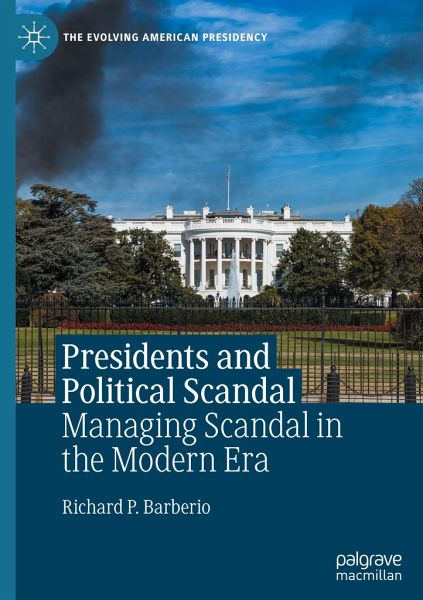
Presidents and Political Scandal
Managing Scandal in the Modern Era
Versandkostenfrei!
Versandfertig in 6-10 Tagen
83,99 €
inkl. MwSt.
Weitere Ausgaben:

PAYBACK Punkte
42 °P sammeln!
This book explores presidential power through an analysis of the ways that U.S. presidents attempt to manage scandals. While presidents routinely stonewall to block or limit investigations into their alleged transgressions or, in some cases, cooperate with investigators, this book proposes the existence of a third way of responding to scandals-a "backfire" or the creation of a counter-scandal to try to extinguish the original scandal. The existence of possible backfires is surveyed through case studies of the major scandals that impacted the Nixon, Reagan, Clinton, and Trump administrations. T...
This book explores presidential power through an analysis of the ways that U.S. presidents attempt to manage scandals. While presidents routinely stonewall to block or limit investigations into their alleged transgressions or, in some cases, cooperate with investigators, this book proposes the existence of a third way of responding to scandals-a "backfire" or the creation of a counter-scandal to try to extinguish the original scandal. The existence of possible backfires is surveyed through case studies of the major scandals that impacted the Nixon, Reagan, Clinton, and Trump administrations. The development of this form of scandal response has meaningful implications concerning the growth of presidential power and its impacts on the functioning of the U.S. political system and the quality of American democracy. Changes in partisanship, the media environment, and the public's view of the presidency and government are topics covered in the book's explanation of the trends in scandal responses.












